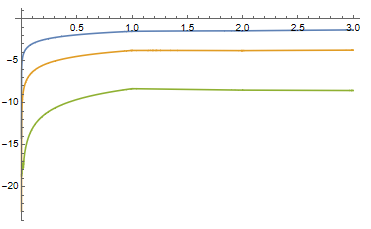The answer is yes indeed. It is a special case of Fox-H function, a variation of the confluent Fox-Wright $_{1}\Psi_{1}$ function (a generalization of the confluent hypergeometric function $_{1}F_{1}$) providing the inverse function. See a previous answer here for details and references. For this particular case solution is
(Setting $\alpha = a$), for $\alpha>1$
$$x = y\cdot\,_{1}\Psi_{1}([1,\alpha];[2,\alpha-1];-y^{\alpha-1})$$ which can be set as $$x=y+\sum_{n=1}^\infty\binom{n\alpha}{n-1}\frac{(-1)^ny^{n(\alpha-1)+1}}{n}$$ whose convergence region is $|y^{\alpha-1}|<|(\alpha-1)^{\alpha-1}\alpha^{-\alpha}|$. For non integer $\alpha>1$ binomials must be set in terms of $\Gamma$ function.
Since Fox-Wright's generalized function can be expressed in terms of Fox-H function we have $$\,_{1}\Psi_{1}([1,\alpha];[2,\alpha-1];-y^{\alpha-1})=H_{1,2}^{1,1}([(0,\alpha)];[(0,1),(-1,\alpha-1)];y^{\alpha-1})$$ $$\,_{1}\Psi_{1}([1,\alpha];[2,\alpha-1];-y^{\alpha-1})=H_{2,1}^{1,1}([(1,1),(2,\alpha-1)];[(1,\alpha)];y^{1-\alpha})$$ for this particular case, Wolfram's Mathematica 12.3 provides an explicit inverse as
$x=y\cdot$FoxH[{{{0,$\alpha$}},{{}}},{{{0,1}},{{-1,$\alpha$-1}}},$y^{\alpha-1}$]
For $0<\alpha<1$ the solution is $$x = y\cdot(1-\,_{1}\Psi_{1}([1,\alpha^{-1}];[2,\alpha^{-1}-1];-y^{\alpha^{-1}-1}))$$
and the above relationships are turned in replacing $\alpha$ by $\alpha^{-1}$ and Fox-Wright function $\,_{1}\Psi_{1}$ by $1-\,_{1}\Psi_{1}$. In this case Mathematica's expression is
$x=y\cdot(1-$FoxH[{{{0,$\alpha^{-1}$}},{{}}},{{{0,1}},{{-1,$\alpha^{-1}$-1}}},$y^{\alpha^{-1}-1}$])
Finally, just to complement this answer, general trinomial equation solutions are developed in section 4 of the following
Reference
Miller A.R., Moskowitz I.S. Reduction of a Class of Fox-Wright Psi Functions for Certain Rational Parameters. Computers Math. Applic. Vol. 30, No. 11, pp. 73-82, (1995). Pergamon
A preprint can be found here. (Document has mis-embedded fonts, isolated commas must be replaced by $\Gamma$ symbol)

